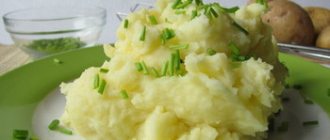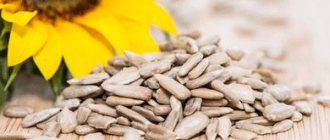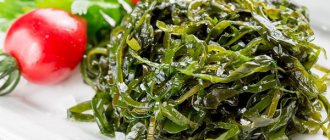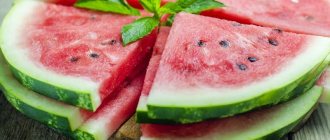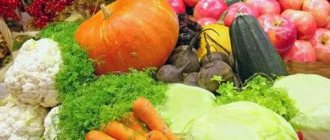What fruits can you eat if you have a stomach ulcer? Which ones are completely contraindicated? Everything we ingest saturates us with energy. This especially applies to vegetables, fruits and berries in the summer season. In summer and autumn, we must be saturated with vitamins for the whole winter. But what should someone do if they have ulcers and certain foods, such as grapes, cause severe pain?
So, let's figure out which fruits and berries are beneficial to the mucous membrane at a certain level of acidity, and which ones will bring about a new exacerbation?
Causes of stomach and duodenal ulcers
Inattention to your diet, frequent smoking, the habit of eating too hot and fried at night and cold hot dogs with mustard during the day are all unfavorable factors that lead to stomach problems. In particular to gastritis, and then to ulcers. Helicobacter bacteria aggravate inflammation of the mucous membrane. But most often they are not the root cause of the disease, because bacteria are also found in the stomach of completely healthy people who never complain of pain. But it doesn't harm them.
The ulcer is already being treated in hospital. Pain from ulceration of the protective mucous membrane is very stylish. The patient is practically unable to work. After treatment in the hospital, the person is sent home. But first they inform you about the need to follow special dietary rules.
A diet called “Table No. 1” is prescribed - gentle nutrition for stomach and duodenal ulcers. This diet places particular emphasis on fresh fruits and vegetables. However, they must also be used wisely.
Table No. 1 for ulcers. Nutrition rules
Nutrition rules should be followed strictly. You cannot treat an ulcer carelessly. There is a high risk that the ulcers will develop into stomach cancer. The gastric mucosa is completely renewed in a few days. Therefore, if you take good care of the treatment, the stomach can be cured.
But the daily menu has a huge impact. It is not recommended to eat many fruits if you have a stomach or duodenal ulcer. Others, on the contrary, due to their composition, are a remedy for inflamed mucous membranes.
How to eat? Firstly, it is important not to drink after eating for at least half an hour. It is better to eat 5-6 times a day, in small portions, so as not to overload your stomach. The diet needs to be nutritious so that it contains many micronutrients, but less fat. All food must be properly processed and moderately heated. It is better to reduce the amount of salt in the diet. The best diet for a patient with an ulcer is dietary food No. 1, where there is a place for healthy cereals, soups, vegetables and fruits, but no place for fried and fatty foods.
In our article we will discuss the benefits and harms of the most popular and most beloved fruits for the gastric and duodenal mucosa.
Basic principles
Experts make the following dietary requirements:
- high nutritional value of the diet;
- a balanced diet, which should include proteins, fats, carbohydrates, vitamins, minerals;
- products should not irritate the gastrointestinal mucosa;
- eating food at room temperature;
- avoidance of foods that increase the secretion of gastric juice;
- fractional meals in small portions;
- eating mashed pureed food;
- limiting table salt.
Is it possible to eat fruit if you have a stomach ulcer?
Nutrition is selected individually for each patient complaining of stomach pain. If after analysis it is clearly established that the patient does not just have inflammation, but already has ulcers, then many fruits will be contraindicated until the wounds heal.
If you have a stomach ulcer, you can only eat fruits that do not contain irritating mucous acid. Some fruits are considered relatively safe for the mucous membranes. Others are highly undesirable, and still others - oranges, for example, are completely prohibited.
The patient will need to study his illness in detail: what is the acidity, where is the ulcer located, is it one, or several of them; and then you need to study the composition of the products. It is important to constantly evaluate your condition after eating food - is what you eat suitable for your stomach, or does it cause painful conditions - belching, pain, fermentation, bloating, etc.?
Now it’s clear - fruits for stomach ulcers and gastritis need to be selected individually.
Healthy fruits and berries for the mucous membranes
Let's discuss all the nuances of proper fruit consumption. If you have a stomach ulcer, you need at least some fruit. How does the body receive vitamins? After all, the main diet during periods of acute pain is pureed soups and cereals. What fruits can you eat if you have a stomach ulcer? What are some fruits really good for your stomach? Will be useful:
- quince;
- plums;
- bananas;
- apples;
- avocado;
- pears;
- persimmon.
Persimmon, like banana, is a very positive fruit in terms of almost complete absence of acids. But it contains iron, carotene, and other elements that improve general condition.
These fruits do not harm the stomach as they do not contain acid. Sweet fruits saturate the body with useful substances, but do not destroy the mucous membrane with their acids.
Fruits and vegetables. How to cook
It is important to process all vegetables and fruits for a disease such as an ulcer. It is difficult for the stomach to process large amounts of fiber.
Fruits and vegetables must be specially processed before consumption. Apples, for example, should be grated, pumpkin should be baked in the oven, avocado and quince should be cut into small pieces. If there is a period of exacerbation, you need to be even more careful. Then the peel of the fruit is peeled and pureed, as for a one-year-old child. You can prepare smoothies, juices, and fruit compotes to make your diet more varied.
It is better to make jelly from quince, since the product is too tart in its raw form. Any jelly, made from various fruits, will be an excellent food for a sick, inflamed stomach mucosa. They perfectly saturate and at the same time envelop the walls of the stomach; you feel much better after such a meal. But in this case, all vitamins and microelements are lost.
Still, raw fruits should also be consumed little by little. Each person needs 30-50 g of fiber per day. You can get it from black bread, but bread will not provide many micronutrients.
Permitted and prohibited products
The list of dishes and menus for ulcer patients largely depends on the stage of the disease. After the operation and during the period of exacerbation, the most gentle diet is prescribed. Patients are recommended to use liquid boiled porridge, pureed boiled fillet, and rosehip infusion.
As the unpleasant symptoms disappear, the menu can be enriched with other dishes:
- slimy pureed soups;
- steamed meat or fish soufflé;
- apple, fruit, milk jelly;
- weak tea;
- curd soufflé, milk;
- steam omelette.
Dietary nutrition should be followed for at least a year after an exacerbation. The following products are allowed:
- yesterday's bread, biscuits;
- soups with vegetable or lean meat broth;
- lean meat in the form of meatballs, soufflés, cutlets;
- fermented baked milk, cottage cheese, sour cream, yogurt, yogurt;
- eggs, soft-boiled or steamed;
- cereals: rice, buckwheat, oatmeal;
- vegetable oils;
- sweet fruits and berries in the form of puree, baked apples.
Doctors advise against eating fresh bread
The following products are prohibited:
- Rye bread;
- rich broths;
- fatty fish and meat;
- fried eggs;
- pearl barley and corn porridge;
- white cabbage, radish, radish, rutabaga, legumes;
- strong tea and coffee;
- mustard, horseradish, sauces, ketchup, mayonnaise.
Dairy
People with peptic ulcers need to consume milk. This product neutralizes excess hydrochloric acid. In addition, it contains a large number of nutrients that are simply necessary to normalize the functioning of the gastrointestinal tract. Milk coats the walls of the stomach, soothes and relieves irritation.
Dairy products contain easily digestible protein, vitamins, minerals, compounds that enhance the body's resistance, and organic acids. You can consume both cow's and goat's milk. Just remember that goat milk has a high fat content and therefore should be diluted with water. Regular consumption of milk for peptic ulcers will help relieve unpleasant symptoms such as heartburn, belching and nausea.
This does not mean that you need to drink milk all the time. You can use it to prepare porridges, soups, casseroles, puddings, and cheesecakes. If you have high acidity, doctors recommend drinking pasteurized milk with a low fat content. If you have a peptic ulcer, you should not consume dairy products in large quantities. Abuse can lead to calcium metabolism disorders.
Attention! Fresh kefir has a laxative effect, and three-day kefir has a strengthening effect.
You can also add kefir to your diet. The product is well absorbed by the body and has high biological value. You can consume kefir both before meals and before bed. Cottage cheese is another indispensable product for stomach and duodenal ulcers. It is useful for both young children and the elderly.
Vegetables
Despite the enormous nutritional value of vegetables and fruits, there are certain restrictions on their consumption for ulcer patients. Foods such as onions, garlic, and radishes are strictly prohibited for ulcers. You will also have to give up horseradish, beans and peas. Mushrooms and hot peppers are excluded in any form.
Even during the period of remission, all of the above-mentioned products are prohibited. They are difficult for the body to digest and also irritate the mucous membrane, increasing pain. If you have an ulcer, you can eat yellow and green vegetables, but you will have to avoid red ones.
Tomatoes and cucumbers are a common combination for preparing salads. Ulcer sufferers will have to give up the first product, but cucumbers can be safely consumed. Patients are advised to bake cauliflower and broccoli. Potatoes, beets, pumpkin - these vegetables can also be safely consumed for peptic ulcers.
Onions and garlic are prohibited
I would also like to say something about potatoes. This root vegetable contains a huge amount of vitamins, microelements, and organic acids. You will have to give up fried potatoes. But mashed potatoes are allowed for consumption. The starch contained in the vegetable stops the inflammatory reaction, relieves spasms and coats the mucous membrane of the digestive organs.
The fiber contained in potatoes does not irritate the intestines and does not stimulate peristalsis. In folk medicine, potato juice is used to treat peptic ulcers. For three weeks, it should be taken half an hour before meals. Only freshly squeezed juice should be used.
You should drink it through a straw so as not to damage your tooth enamel. It is important to understand that potatoes cannot be stored for more than six months. After this period ends, harmful substances accumulate in the root crop, poisoning the body. Not all types of cabbage are ulcer-friendly. Cabbage, for example, increases the level of acidity, so its consumption is prohibited.
Cauliflower is recommended to be used as a base for preparing dietary soups or purees. Only inflorescences should be used, as the leaves have a negative effect on the mucous membrane. Stewed and salted cabbage is contraindicated for ulcers. The opinion of experts on the possibility of using sauerkraut and seaweed for ulcers is very contradictory.
If you have an ulcer, you can eat cauliflower, but you will have to give up white cabbage.
Carrots are another food rich in vitamins. It is contraindicated to consume this vegetable raw, as this leads to an increase in acidity. Carrots are allowed to be consumed boiled and pureed. During remission, in order to prevent exacerbation, it is recommended to drink carrot juice.
Pumpkin contains a large amount of vitamins. It contains little fiber, so the vegetable does not affect peristalsis. You can use pumpkin for ulcers in any form. Experts say that mashed pumpkin with honey promotes wound healing. Pumpkin juice reduces the production of gastric juice. Stewed or boiled vegetables relieve inflammation and normalize digestion processes.
Zucchini is an essential product in the diet of patients with ulcers. The vegetable is rich in vitamins, potassium, and iron. Zucchini contains substances that relieve the inflammatory reaction, normalize digestion, and also have antitumor activity. It is unacceptable to consume them raw. Boiled zucchini can be used as a base for making soups and purees.
Celery accelerates the healing of defects in the mucous membrane of the stomach and duodenum
Celery is rich in essential oils, purines, trace elements, and vitamins. The substances that make up this vegetable have a protective effect and accelerate the healing process of ulcers. Fresh greens in moderate quantities are allowed to be consumed even during an exacerbation of an ulcer.
Dill contains a large amount of vitamin C, phosphorus, magnesium, calcium, calcium. Parsley is also allowed; it contains carotene, as well as a large amount of vitamins and microelements. Now let's talk about foods that can be consumed exclusively during remission:
Nutrition for gastritis and ulcers
- beet. It contains natural acids. Eating vegetables during an exacerbation is strictly prohibited. It is recommended to take beetroot juice mixed with honey to prevent exacerbations;
- cucumbers A small amount of chopped vegetables without peeling can be used as part of various dishes. Pickled cucumbers are strictly prohibited;
- tomatoes. During remission, you can eat peeled, peeled vegetables;
- onion. Boiled vegetables are used exclusively as part of other dishes;
- Bell pepper is a powerful antioxidant. It has antitumor and antibacterial activity.
Fruits
The following fruits have virtually no negative effect on the mucous membrane of the stomach and intestines: bananas, apples, avocados, pears, plums. If we talk about apples, they are a hypoallergenic product that contains vitamins and microelements.
A large amount of pectin has a beneficial effect on the condition of damaged mucous membranes. It is worth choosing sweet apples, as the acid of some varieties can further damage the digestive organs. Apples must be peeled. During periods of exacerbation, they can be consumed exclusively baked.
When an ulcer worsens, it is recommended to eat oven-baked apples.
Pear is another useful fruit for peptic ulcers. It should also be peeled, and during a relapse it is allowed to be consumed exclusively in baked form. The pear contains ascorbic and nicotinic acid, thiamine, riboflavin and other vitamins.
This low-calorie fruit also contains a huge amount of microelements. Experts recommend not drinking water or any liquid at all in the first thirty minutes after eating a pear, as this has a bad effect on the condition of the mucous membrane of the damaged organ.
Attention! Peptic ulcer disease is accompanied by an increase in acidity levels. Therefore, it is better to exclude sour fruits, berries and vegetables.
Watermelon and melon are those foods that increase the secretion of gastric juice, which further damages the mucous membrane. To reduce their negative impact, a small amount of watermelon and melon can be eaten for dessert. It is difficult to overestimate the benefits of pomegranate juice, but people with ulcers should avoid this fruit.
For ulcers caused by a bacterial infection, a water infusion of dry pomegranate peels is useful. Persimmon can be safely consumed by patients with ulcers. This fruit contains a tiny amount of organic acids, so it does not cause an increase in acidity levels. Persimmon is rich in magnesium, potassium, iron, iodine, manganese.
Porridge
Buckwheat porridge can be consumed both during remission and during exacerbation. But during a relapse, porridge should be cooked in water, but not milk. As the attack subsides, you can add a little butter and peeled vegetables to the porridge. Oatmeal is generally an ideal product for ulcer sufferers. It relieves the inflammatory reaction and envelops the mucous membrane.
Wheat cereal does not cause allergic reactions, removes toxins and restores the body after illness. It can be used during remission. During an exacerbation, it is allowed due to mechanical irritation. Semolina helps cope with spastic pain from peptic ulcers. It is worth understanding that cereals contribute to weight gain.
Buckwheat porridge can be consumed both during exacerbation and remission
Drink
If you have a peptic ulcer, you can drink tea. The main thing is not to add lemon to it and not to brew the drink too strong. Cocoa is a rather controversial drink, as it is a heavy and high-calorie drink. Coffee, unfortunately, is prohibited for ulcers.
Patients are allowed to drink the following:
- jelly;
- vegetable and fruit juices;
- compotes;
- dairy products;
- alkaline waters;
- teas;
- cabbage, potato, pumpkin, viburnum juice;
- low-fat milk.
Alcohol is strictly prohibited for ulcer sufferers. Its use increases the level of acidity, slows down the process of digestion of food and contributes to the occurrence of complications. Kvass and carbonated drinks are also allowed. So, nutrition for gastric and duodenal ulcers plays an important role in the treatment process. Even the most powerful medications without diet may be ineffective.
A properly composed menu will help restore the damaged mucous membrane of the digestive organs, reduce the clinical manifestations of the disease and speed up the recovery process. An ulcer is an insidious disease that can wait and at any opportunity returns in the form of a relapse. To prevent this from happening, stick to a proper diet every day.
What fruits should you not eat?
It is absolutely known that fruits containing acid only cause harm in cases of erosive damage to the mucous membrane. Only sweet fruits are recommended.
The list of prohibited sweets is as follows:
- pomegranate;
- orange;
- grapefruit;
- peach;
- kiwi;
- pineapples;
- melons;
- figs
It is better to leave the listed products on the store shelf. Citrus fruits are contraindicated for any acidity: both high and low. It is also forbidden to eat melon, even when the patient feels well. This fruit is not as easy to digest as it seems.
Useful berries for ulcers
What else can you eat during remission? You can expand your diet at this time. Fruits and berries for stomach and duodenal ulcers can be eaten raw, but chopped in a blender is much better.
What berries are healthy? In the summer, berries such as raspberries, strawberries, and black currants are very useful. But red currants and gooseberries are too sour. They should not be eaten raw. It is better to be careful with cherries and cherries. Watermelons can only be consumed during a period of stable remission - no more than 2 slices per day.
How much and how to use?
If overused, serious digestive disorders can occur.
Eating dried apricots, like any other product, should be in moderation. There is no specific allowed amount for ulcer patients, since the patient must focus on his own well-being. You can eat dried apricots in their pure form and add them to various dishes. Quite tasty and extremely healthy dried fruit compote, for the preparation of which you need:
- Take equal amounts of black currants, rowan berries, rose hips, 20 g of prunes and 10 g of dried apricots. Before using dried apricots and plums, you will need to soak them for 20 minutes.
- Mix the ingredients, add 2 tablespoons of sugar and add a liter of water.
- Cook over low heat for 15 minutes.
- Filter and drink throughout the day.
The diet plan for patients diagnosed with a stomach ulcer may include puree soup prepared according to the following recipe:
- Boil 50 g of dried apricots.
- Add 2 apples, pre-cut into slices, and 2 tbsp. l. Sahara.
- Boil the ingredients and then grind in a blender.
- Dilute a spoonful of starch in water and pour into the soup.
- Bring to a boil and remove from heat.
Raisins will also be useful for stomach ulcers, so they are often combined with dried apricots to make jam. It is necessary to boil dry raisins, apricots, plums in equal quantities and pass the soft dried fruits through a meat grinder. Grind cottage cheese with cream and lay out layers of jam.
The benefits of bananas for those suffering from gastritis and ulcers
Still, what fruits can you eat if you have a stomach ulcer? Ripe sweet bananas are most useful for ulcers. They are recommended by doctors for both chronic gastritis and ulcers. They have the ability to heal mucous membranes. Therefore, one banana should be eaten 30 minutes before lunch (but not in the morning on an empty stomach). These tropical fruits contain sodium, phosphorus, magnesium, and a lot of potassium. Vitamins include B1, B2, B9, vitamin A and C.
Bananas regulate the acid-base balance in the body, help with intestinal function, raise the level of the happiness hormone and improve heart function. In addition, bananas improve the functioning of the nervous system. You can eat them fresh or in puree form. For people with low acidity, this is generally an irreplaceable product - they need to eat 2-3 fruits a day. But with high acidity - it’s better not more than 1 per day. And only after eating.
It will be very good for the stomach if you prepare a banana-berry or banana-mint smoothie using a blender.
Dates for oncology
Many years of research have established a relationship between the development of cancer and nutrition. The Arabic delicacy contains a huge amount of useful chemical elements that increase the body's resistance to fight various diseases. Selenium, which is part of the fruit, has the following effects on human health:
- strengthens the immune system;
- normalizes metabolism;
- enhances antioxidant protection;
- prevents cell damage.
Regular consumption of dates improves the functioning of the thyroid gland, brain and cardiovascular system. Including even a few Arabic delicacy fruits in your daily diet reduces the risk of developing cancer. Dates for cancer help the body cope with the consequences of treatment therapy and quickly restore the functioning of the gastrointestinal tract - an infusion of the fruit normalizes water balance during diarrhea .
Apples and pears for ulcers
Our ordinary apples are no less useful than bananas. The fiber they contain is called pectin. This fiber does not harm the stomach. And as soon as the exacerbation passes, you can and should immediately start eating apples, mashed like puree at the beginning. And then, if the remission lasts a long time, eat whole apples.
Apples are eaten together with carrots and sour cream. You can make fruit drinks, jelly and bake in the oven. But there is one rule. It is better to eat sweet apples raw. Sour green apples will still injure the mucous membranes with their irritating effect.
Apples are especially needed for those who have bleeding ulcers. Who loses hemoglobin along with their blood? After all, as you know, apples raise hemoglobin levels more than other fruits. But there is no need to improve blood with pomegranate, since pomegranate contains a lot of vitamin C.
Pears are also completely safe for the stomach. They also contain a huge amount of vitamins: there is vitamin A, PP (nicotinic acid), K, and riboflavin - vitamin B2. This is a great way to get the necessary complex of vitamins and microelements without fear of complications. However, you need to be careful with dried pears and monitor your well-being.
What are the benefits of apples?
Patients often ask the doctor whether apples are allowed for stomach ulcers. The answer is definitely yes. A distinctive feature of apples is their low allergenicity, which allows the vast majority of patients to consume the product.
The fruits contain an abundance of mineral salts, organic acids, pectin, vitamins, and microelements.
Benefits for the digestive system
- Fruits contain a large amount of vitamin, which activates digestion processes.
- Due to the high content of organic fruit acids, apples can significantly reduce fermentation processes in the intestines. This normalizes the motility of the stomach and intestines, prevents the development of flatulence and bloating. Thanks to the fruits, the intestines are cleansed naturally.
- Pectin, which is part of apples, acts on the small intestine as a mild laxative. This is an excellent preventive measure for constipation, characteristic of gastric ulcers.
- The substances contained in the fruits are considered to prevent the development of malignant neoplasms.
Is it possible to have grapes?
We explained which fruits you can eat if you have a stomach ulcer, and which you can’t. Grapes are prohibited foods. Both dark and light varieties are contraindicated. Although it is extremely beneficial for the body, ulcer sufferers are better off finding all its beneficial elements in other foods or supplements.
It is known that grapes cause unpleasant symptoms - bloating, heartburn, colic. Grapes cause fermentation when exposed to an acidic environment, and this is very harmful and painful for those suffering from stomach pain. Even a small amount of juice causes discomfort in patients. Moreover, you can’t drink wine. But you can eat raisins and dried grapes in moderation.
Dates for pancreatitis: is it possible or not?
Before including dates in your diet for pancreatitis of the pancreas , it is necessary to take into account the stage of the disease and the individual characteristics of the body. A high sugar content in fruits can lead to an increase in blood glucose levels and, as a result, a deterioration in general condition. It is extremely undesirable to consume fruits in the acute phase of the disease. In this case, the following unpleasant symptoms may appear:
- bloating and abdominal pain;
- fermentation and colic in the intestines;
- loose, foamy stool.
To reduce swelling of the gland and reduce the production of gastric juice - at the stage of exacerbation of the disease, Arabic sweets can be included in the diet only in the form of decoctions and mousses.
During the period of remission, there are no strict restrictions on the consumption of berries. However, the final decision on whether dates can be eaten with pancreatitis is made only by the attending physician.
The main condition for including the delicacy in the diet of patients suffering from inflammation of the pancreas is the normalization of metabolic processes and the absence of a predisposition to obesity. Strict adherence to the doctor’s recommendations will avoid exacerbation of the disease and guarantee the positive effects of fruits on the body.
Olives in the diet
What are the benefits of olives? Olives have a beneficial effect on the functioning of the entire system - the intestines, stomach, pancreas. It is recommended to drink 1 tbsp of olive oil every day. spoon before breakfast, lunch and dinner. Approximately 20-30 minutes before meals.
This product, like apples, contains pectin. This substance removes toxins from the body.
Are dried fruits allowed?
Dried fruits are dangerous in many ways for patients with ulcers. When you adhere to a strict diet, do not risk deviating from the nutritional rules that your gastroenterologist gave you.
But during the period of remission, you can eat a couple of dried pieces of your favorite fruit. A very small amount of dried apricots will not cause any harm. Just like a few grapes, your ulcer will not immediately grow in size. If you really love, for example, dried apricots, raisins, dried figs, then twice a month (if your stomach doesn’t hurt) you can indulge yourself. In any case, it is much healthier than cigarettes or sweet buns. Dried fruits retain useful elements, unlike those fruits that have undergone heat treatment.
It is recommended to make compotes from dried fruits. Their benefits are difficult to overestimate for patients with low acidity. But there is also no need to overdo it with the consumption of compotes or dried fruit jelly.
Sample menu
As stated above, if you have stomach pain, you need to eat 5 times a day. What is included in the daily diet? What fruits can you eat if you have a stomach ulcer? At first, tested or pureed.
So here's an example.
- In the morning. Cottage cheese with honey. Tea with herbs. And bread with quince jam.
- Then puree soup with chopped ingredients.
- For lunch, mashed potatoes and steamed fish. Compote or fruit drink made from berries.
- Jelly made from apples and pears.
- For evening. Sour milk or fermented baked milk with rye bread.
It is better to coordinate the menu for the week with a professional nutritionist. If you have a stomach ulcer, fruits can be added to yoghurts.
Conclusion
To maintain health and vigor, you need to eat measuredly and correctly. Every person needs proteins, fats, carbohydrates, and many other nutrients. Therefore, fruits and vegetables for ulcers or gastritis should be consumed in large quantities, but in pureed form. If you have a stomach ulcer, it is not only possible, but also necessary to eat fruits and vegetables in sufficient quantities. But you should definitely consult a doctor. Find out which fruits you should not eat in your case.
If you are interested in the question of which fruits will be useful for stomach ulcers, the answer is simple - these are all those fruits that have a sweet taste and do not contain acids that are destructive to the mucous membrane.
Forbidden fruits
Having dealt with the permitted fruits for gastritis, we will identify the prohibited ones, which cannot be eaten during an exacerbation of diseases of the gastrointestinal tract.
Grape
Ripe and sweet grapes, it would seem, cannot harm the stomach.
But do not forget about its laxative and irritating effect, which leads to increased production of hydrochloric acid and subsequent bloating, as well as general discomfort.
Grapes are contraindicated for any type of gastritis.
Melon
The yellow berry is a hard to digest fruit. Melon fruits are very difficult for a weakened stomach and lead to its overload.
Stagning, undigested pieces lead to fermentation in the stomach, intestinal flatulence, and, consequently, to functional failures of the entire gastrointestinal tract system.
Large berries are eaten only during the period of remission, cut into small portions.
Kiwi
Hairy kiwi is a citrus fruit, but due to the large amount of acid and seeds it contains, it is prohibited for consumption.
Patients with high levels of acidity should be especially careful about consuming kiwi, since additional irritation can cause an attack of heartburn and even vomiting, sharply increasing the volume of gastric juice.
If you cannot refuse to eat your favorite treat, eat it in the form of a pureed paste or jelly.
Fruit juices
Any freshly squeezed juice is contraindicated for gastritis. Even if the drink is made from permitted fruits, it will cause a “burn” of the mucous membrane, causing a sharp increase in hydrochloric acid, which leads to worsening gastric ulcers and the appearance of new erosions. The consumption of any juices should be postponed during treatment and recovery of the stomach, especially with erosive gastritis.
When undergoing therapy during an exacerbation of gastritis, pancreatitis or ulcers, consultation with a gastroenterologist on the topic of permitted fruits and vegetables will be mandatory. It should be said that some vegetables for ulcers bring great benefits to the stomach, easing the course of the disease.
Self-consumption of certain prohibited fruits without moderation can lead to adverse consequences.
Eating sweet fruits is useful for gastritis, and individual solutions to problems with diet during illness will make the treatment process more comfortable. Vitamins and microelements contained in fruits will restore the body after a diet and in cases where gastritis has worsened. The speed of recovery from this disease and a long period of remission depend on the correct diet for gastritis.
